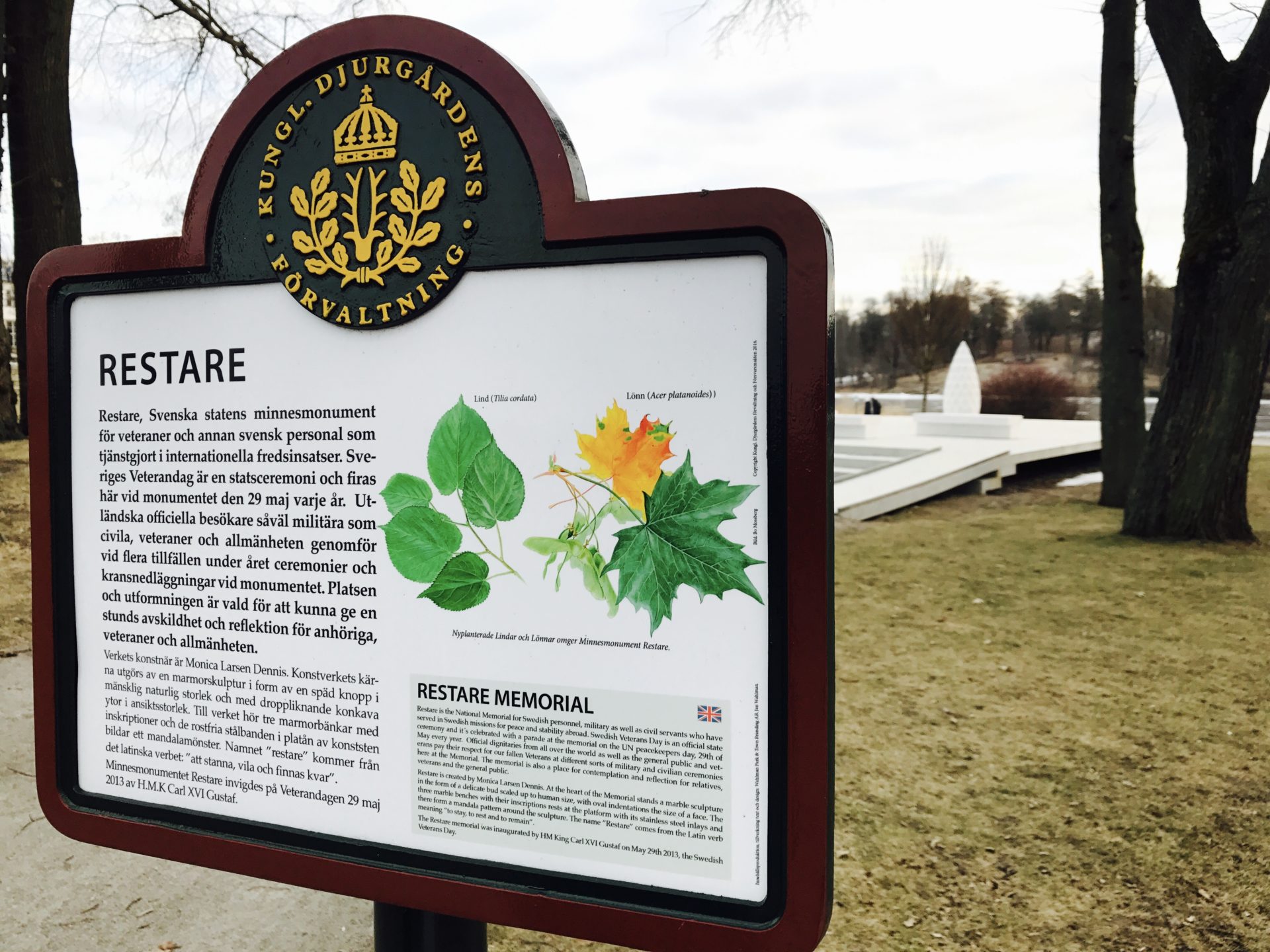Sweden Stockholm (2)
>> My name is Katarina Ericsson, and I'm at present the President of the Korean War Veterans Association, which is actually part of the Korean Association here in Sweden since a few years back. My father was in Korea, so I'm a child to a Swedish Korean War veteran. When my father, who was very active in the association, when he passed away 2012, unfortunately the association then had no capacity to continue, and that's when I stepped in, and we joined the Swedish Korean Association. So my father was there. He was young when he was there. He was 22 years old. He came to Korea in July 1953 just before the armistice and was there for 6 months, so I grew up with all these stories about Korea, about Asia and stories from the war, which at that time was more like fairy tales but very thrilling stories about transporting things close to the front line of the war and hiding and hearing gunfire and operating wounded soldiers, and then of course my father loved to see "M*A*S*H" and told us that this is exactly what it looked like, and so I grew up with all of this, and I ended up in Asia myself for some years. I was working in Beijing, and just before my father passed away, he joined one of the revisit programs to Korea, and I had the possibility to accompany him and learned a lot more about the Korean veterans from all over the world, about how Korea still so many years after the world still appreciates and still thanks the veterans, and I realized the importance of keeping this group together to ... that there has to be a contact point in each country that still has veterans and also to bring together all the networks of children and grandchildren of the veterans, so this is why I'm engaged in this because I think it's really important to keep the memory alive and to take this on to new generations, and again, Korea still so many years later still invites veterans, those who are ... who still manage to travel and their children and grandchildren to come to Korea. But we also have ways of acknowledging the Swedish contribution here in Sweden. We have started since a few years back to celebrate the 23rd of September, which is the day when the first group of Swedes arrived in Pusan and started to work, so 23rd of September, 1950, which was very early. Sweden reacted very early to decision to support Korea with a field hospital. In the end, it became a stationary hospital in Puson, and again, this is where my father worked and the Swedish veterans worked. When I took over this responsibility of representing this group, we had a list, which was not that long, and I wanted to see if there were other veterans or families of veterans in the country that were still interested. So I managed to ... I wrote a little article and managed to get it published on the 27th of July, which is the armistice day, and as a response to that article actually, we got to know many more veterans that were interested and also family members, so our list became a little bit longer, and we do what we can to keep this group together to try to meet once a year on the 23rd, but also, we organize other events for the veterans, and the Korean embassy here is very generous and in helping us to organize these events and also to help us to fund these events, so the 23rd of September is very much appreciated. We've ... The last 2 years, we've been invited to the [INAUDIBLE] castle for a very, very nice dinner but also organized some presentations and seminar part where we listen to either one of the veterans telling their story, or, like, last year, we had a researcher who is now doing some research about Swedish medical assistants in wars, not only the Korean War. He came to talk about his research. We've also, of course, had presentations about the documentary project now ongoing. There's a short promo film that we have shown, and we hope that maybe this year or if not this year maybe next year to be able to show the whole documentary when it's finished in one of these meetings because of course the idea of a documentary is to spread knowledge about the war, but I think it's also fantastic for the veterans themselves to see it, and I can tell you, not one eye was dry. It was many tears when ... And just thinking about that little promo, I almost cry because it's very emotional to see the veterans talk about this and to think about what they did, the fact that they were all volunteers and went there just because they wanted to help. They wanted to use their medical skills to help a country in war. And I've been to Korea a couple of times, also business trips, and when you tell people that you're from Sweden, they ... and that you have a parent who's a Korean veteran, people are very, very ... I mean, it's to the point you almost feel embarrassed that they think me. I wasn't there. But they very much appreciate the Swedish veterans. We weren't many there, maybe just over 1,000 people, 1,100. No Swedes died in the war, but they were all volunteers, and I think that matters a lot.
